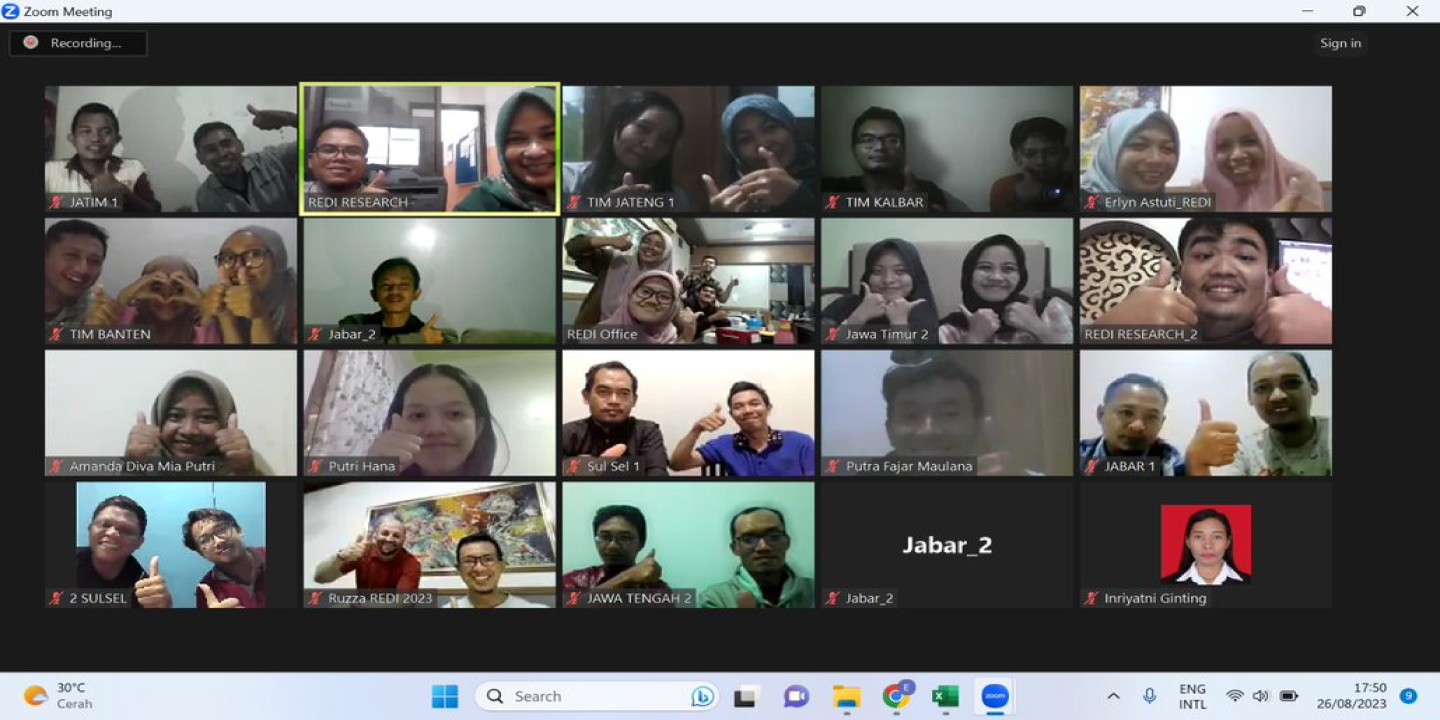Client:
FHI 360
Provinsi:
West Java, Central Java, East Java, West Kalimantan, South Sulawesi
Bidang:
Social Research
MADANI Civil Society Support Initiative is a five-year USAID-funded project implemented by FHI 360. MADANI aims to strengthen local government accountability and community tolerance and openness in Indonesia by enhancing and sustaining the capacity, legitimacy, and sustainability of local Civil Society Organizations (CSOs). MADANI’s vision is to make Indonesia a better, more tolerant, and more resilient democracy, demonstrated by strengthened local democratic practices, improved local government performance and responsiveness, better accountability of frontline service delivery, and more effective, inclusive and transparent mechanisms for community participation.
The MADANI Endline Data Collection was carried out by conducting a repeat survey in 31 districts of MADANI partner districts. The target population of the Endline Survey was citizens and government representatives located in MADANI program sites. The team surveyed 1,662 respondents consisting of 1,414 citizen respondents (probability sampling) and 248 government officials and service providers (non-probability sampling). They comprise (i) 1,410 citizen respondents, (ii) 90 government officials and frontline service providers at the district level, and (iii) 158 government officials and frontline service providers at the non-district level.
In addition to the above objectives, the MADANI Endline Data Collection aims to measure MADANI’s Seven Performance Indicators, including:
- Indicator #17: Percentage of local government representatives and citizens surveyed reporting improved quality of frontline service delivery, including in Maternal and Child Health (MCH), due to citizen’s awareness and participation.
- Indicator #18: Percentage of local government representatives and citizens surveyed reporting that local planning and budgeting processes better reflect community needs due to citizen’s awareness and participation
- Indicator #19: Percentage of local government representatives and citizens surveyed reporting increased social tolerance and inclusiveness due to citizen’s awareness and participation
- Indicator #20: Percentage of citizens surveyed reporting improved access to information on priority sectors
- Indicator #21: Percentage of government representatives surveyed reporting trust in local CSOs
- Indicator #22: Percentage of surveyed citizens reporting trust in local CSOs.
- Indicator #23: Percentage of government representatives surveyed reporting that CSO collaboration is beneficial

